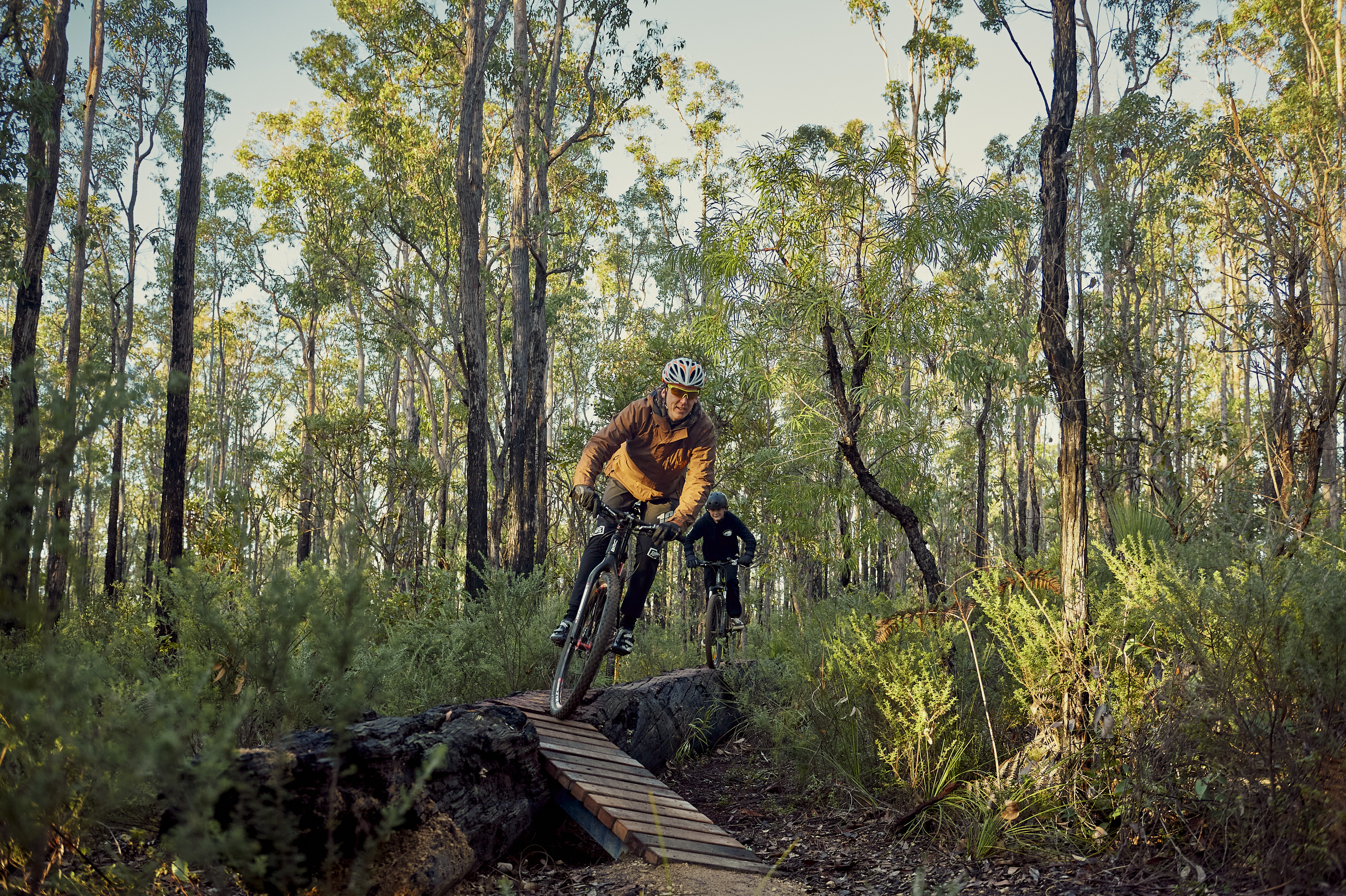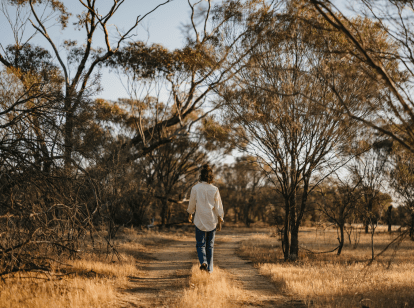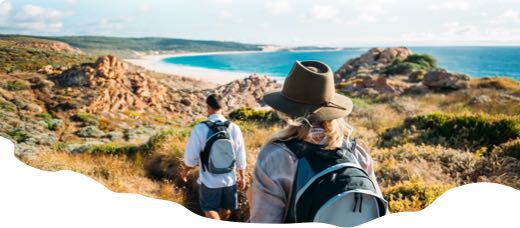Environment
At Trails WA, we value and promote the conservation and protection of the natural assets of Western Australia. Everyone wants and is entitled to a positive trails experience, hence we encourage trail users to apply the '7 Leave No Trace Principles' so that your trails experience has minimal impact on the environment and others.

Tread lightly and Leave No Trace
Leave No Trace Australia promotes and inspires responsible travel and recreation through education, research and partnerships.
Leave No Trace is Australia's national minimal impact program.
1. Plan Ahead and Prepare
- Know the regulations and special concerns of the area you'll be in - for example fire weather warnings and whether campfires are permitted.
- Carry a map or guidebook
- Take a moment to investigate the cultural significance of the land and sea you are walking / riding / snorkelling on.
- Plan your route and drop-offs around designated vehicle access points
- Repackage food to minimise waste
- Pack suitable clothing (see checklists below)
- Inform someone at home of your intentions or log your attendance in any trail-specific logbooks.
2. Travel and Camp on Durable Surfaces
- Don’t be tempted to take shortcuts - stay on the track, you never know what/who you might bump in to or which rare or endemic species of flora and fauna you might be interfering with.
- Only use purpose built or dual use trails for biking and horse riding (some trails, such as the Bibbulmun Track, are ‘walking only’ trails, which are not built to withstand the impact of bikes and horses).
- Don’t trespass on private land - that's someone else's backyard
- Keep to the middle of the track, even when it is underwater
- Use designated campsites or local accommodation for overnight stops
3. Dispose of Waste Properly
- You wouldn't want to see the track ahead of you littered with rubbish, so do the right things and remove rubbish or spilled foods which can harm native animals and spoil the environment. This includes ‘organic’ items such as apple cores and fruit peel.
- If a toilet exists please use it! But if you are ‘caught out’ then walk 100m away from the track and any water course (leave your pack on the trail if you are in a group, so they know where you are). Dig a 15cm deep hole and bury your waste and toilet paper as well.
- Don’t wash your hands in streams if they have soap or sunscreen on them. You may be in a water catchment area and clean water supply is crucial. Use a sanitising gel which does not require water.
4. Leave What You Find
- Phytophthora Dieback - minimise the spread of Phytophthora Dieback by cleaning mud from boots, tyres, camping equipment, vehicles and horse’s hooves before and after your walk – start clean, stay clean.
- Preserve the past - do not touch cultural or historic structures
- Leave rocks, plants and other natural objects as you find them - they are home to many insects or small animals that play a crucial part in the ecosystem.
- Be careful not to introduce or spread non-native species (e.g. by throwing your apple core into the bush).
- Do not build structures, make new fire places or dig trenches
5. Minimise Campfire Impacts
- Campfires, no matter how small, can quickly escalate and devastate the bush. (Use a lightweight stove for cooking and enjoy a candle lantern for light at night).
- Where fires are permitted, only use established fire rings
- Fires are not permitted on ‘very high’ or ‘extreme’ fire dangers
- Keep fires small and use only dead wood found on the ground that can be broken by hand.
- Burn all wood to ash, put out campfires completely (pour a little water over if necessary).
6. Respect Wildlife
- Observe wildlife from a distance
- Do not follow or approach them
- Never feed animals
- Feeding wildlife damages their health, alters natural behaviours, and exposes them to predators and other dangers.
- Leave your pets at home (dogs are not allowed in national parks, water catchments or nature reserves and other areas are regularly baited with 1080 poison).
7. Be Considerate of Your Hosts and Other Visitors
- Respect other visitors and protect the quality of their experience.
- Be courteous
- Give way to other users on the track
- Mountain bikers should ‘yield’ to horse riders by stopping their bikes and getting off, and ‘yield’ to uphill bike traffic.
- Let nature’s sounds prevail - avoid loud voices and noises
Can’t find something you’re looking for?
Our Explore Map tool provides a lot of detail and filters to help explorers find the best and most suitable trails. Head on over to our Explore Map for greater search capacity.

